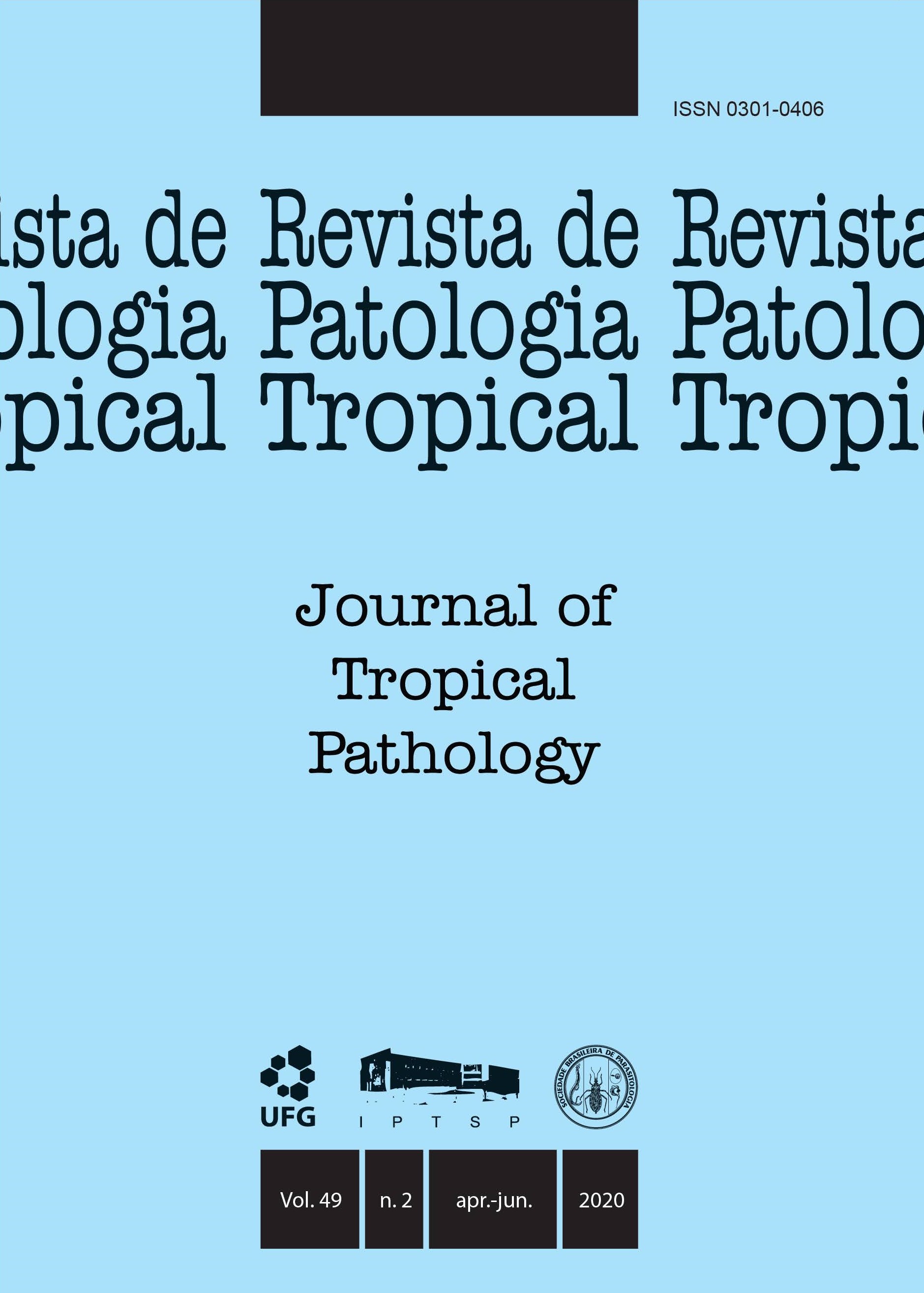In vitro EFFECTS OF SODIUM SELENITE SUPPLEMENTATION ON CELL VIABILITY OF DIFFERENT FORMS OF Trypanosoma cruzi
DOI:
https://doi.org/10.5216/rpt.v49i2.61410Abstract
Selenium is an essential trace element which, at adequate levels, presents different beneficial biological effects, such as cancer regression, tissue development and protection against oxidative damage. The positive effects of this element are related to the expression of selenoproteins and their ability to modulate the immune system and the oxidative stress response. In Chagas disease and sleeping sickness, selenium supplementation has shown blood parasitism reduction and the alleviation of specific aspects of the diseases, such as diminishing anemia in sleeping sickness or minimization of myocardial and right ventricular chamber damage in Chagas
disease. Although the influence of selenium in trypanosomiasis has been investigated, the direct effects of sodium selenite supplementation on trypanosome cells are poorly understood. Treatment of Trypanosoma cruzi cultures with low selenium doses demonstrated different results, according to the parasite evolutive form analyzed. Epimastigote cultures supplemented with 100 nM of sodium selenite presented cell growth increment, which varies from 10 to 40% according to the parasite strain assayed. Selenium concentration around 600nM leads to a 30% increase in the amastigote form number, whereas, at the same dose, the mammal host cell presented no cellular growth alteration. For the bloodstream form, the results agree with the
literature, and all sodium selenite concentrations tested, demonstrated a reduction in parasite viability. The data suggest that selenium supplementation, under specific conditions, could increase T. cruzi viability, demonstrating that a strategy for using selenium as an adjuvant in Chagas disease treatment requires additional experimentation.
KEY WORDS: Selenium; trypanosomiasis; Chagas disease; Trypanosoma cruzi.
Downloads
Downloads
Published
How to Cite
Issue
Section
License
The manuscript submission must be accompanied by a letter signed by all authors stating the full name and email address, confirming that the material has not been published or is under consideration for publication elsewhere, and agreeing to transfer copyright in all media and formats for Journal of Tropical Pathology. The authors will not be paid for published articles. They are solely responsible for the content of those articles, even if the Editor holds the right to adjust them to the norms of the journal.
The reviewers will not be paid for the peer review process.

